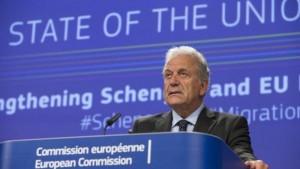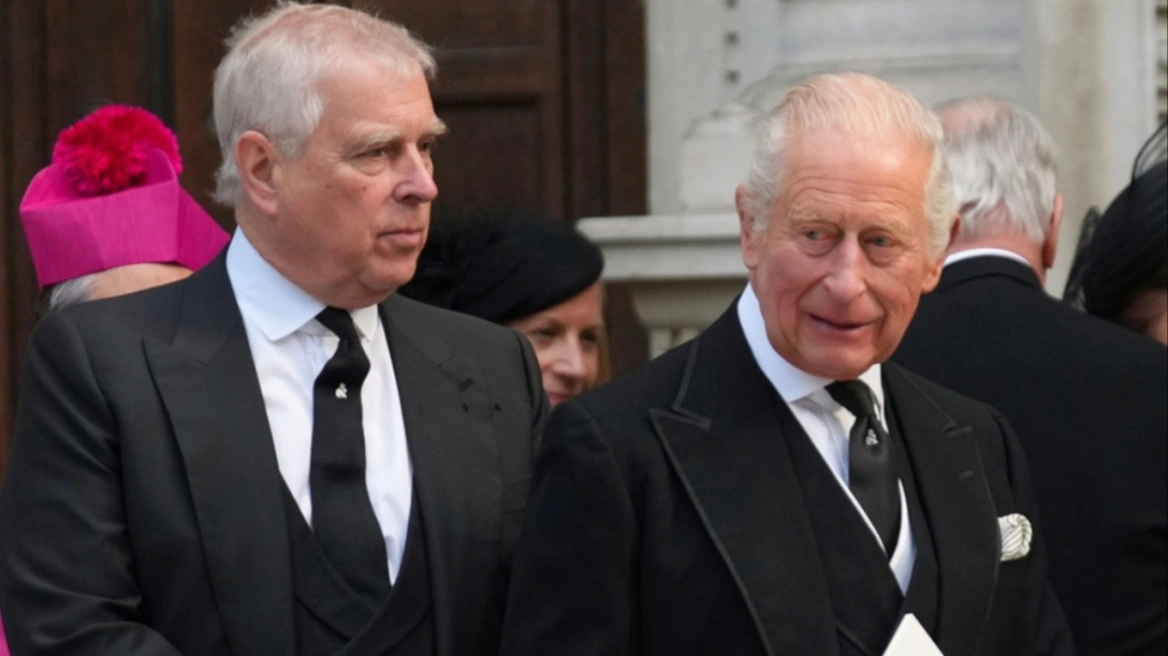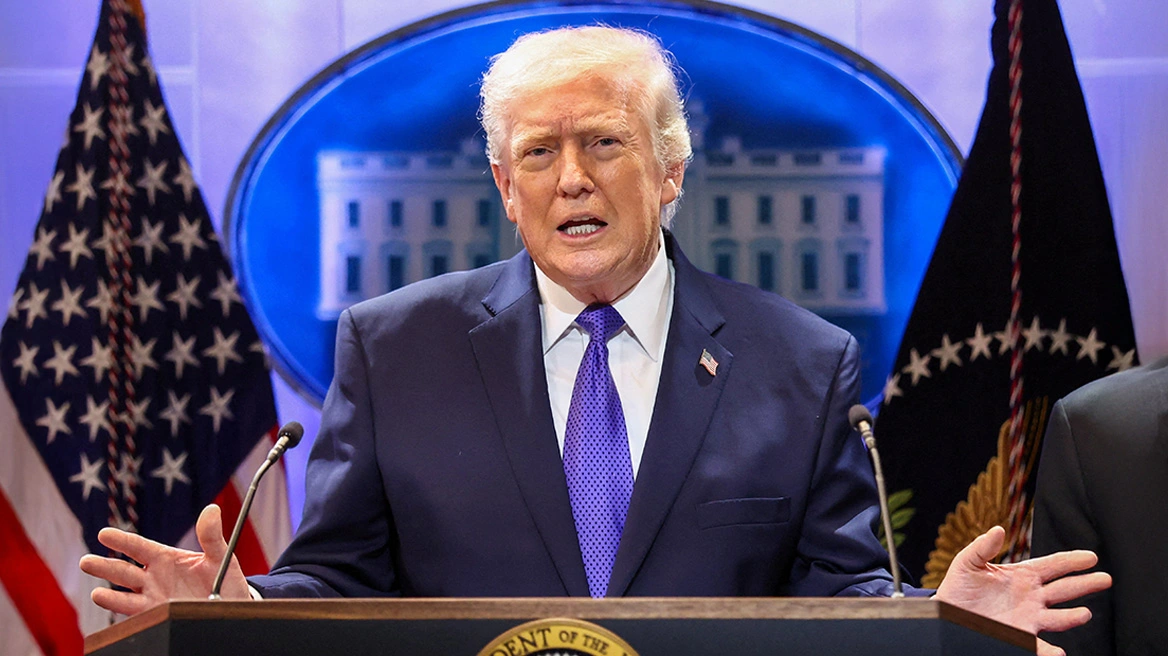The Commission on Wednesday (27 September) made no proposals to continue with the divisive mandatory refugee relocation system and instead focused on resettlement, which means taking candidate refugees from outside the EU, on a non-mandatory basis.
The countries who decide to take part in the resettlement scheme will benefit from financial incentives. Half a billion euros have been set aside for EU members to take at least 50,000 refugees directly from Africa, the Middle East and Turkey to discourage migrant boats from making the risky Mediterranean crossing.
Now that irregular arrivals have fallen, we must enhance legal pathways. Proposing to support further 50000 resettlements with 500M€ pic.twitter.com/Cv1fCPeKWv
— DimitrisAvramopoulos (@Avramopoulos) September 27, 2017
There will be “increased focus” on taking refugees from North Africa and the Horn of Africa – particularly Libya, Egypt, Niger, Sudan, Chad and Ethiopia, the Commission said. This is obviously an effort to placate Italy, which has been under pressure due to high numbers of arrivals from these countries.
Backpedalling
At the same time, the European Commission is backpedalling from its mandatory relocation strategy, which alienated several EU members from Central and Eastern Europe.
The programme set up by the Commission was approved by majority vote of member states in the face of opposition from the Visegrad countries who said their societies could not absorb mainly Muslim immigrants.
The European Court of Justice on 6 September dismissed complaints by Slovakia and Hungary about EU migration policy, upholding Brussels’ right to force member states to take in asylum seekers.
The Commission-proposed relocation scheme introduced two years ago expired on 26 September.
Under the system, member states should have taken a total of around 98,000 migrants from Italy and Greece. In reality, 29,144 relocations have taken place so far, 20,066 from Greece and 9,078 from Italy.
But with the EU-Turkey deal reducing irregular flows to Greece by 97% and the majority of migrants arriving in Italy not being eligible for relocation, the number of persons to be relocated turned out to be much lower.
The Commission made the point that the figure of 98,000 was decided based on arrival figures from two years ago.
Home Affairs Commissioner Dimitris Avramopoulos, who presented the package of new proposals, was asked if the Commission would still push for legal action against the Visegrad countries. “I prefer dialogue to sanctions,” he said, adding: “Now is an opportunity to start working together again.”
Solidarity cannot stop from one day to another. MS have to relocate all remaining eligible persons, and should continue showing solidarity pic.twitter.com/OhMi2OdU2a — DimitrisAvramopoulos (@Avramopoulos) September 27, 2017
But he still insisted that the relocation plan is valid and legitimate. “I want to be clear. The door is open and we are ready to work will all these countries so that they contribute to the relocations scheme within the coming months.
“The judgement constitutes one more opportunity for them to show solidarity. I hope they will take it,” Avramopoulos said.
At the moment, there are around 2,000 people in Greece awaiting relocation with another 2,000 that may still be registered. In Italy, the Commission says that 7,200 eligible persons have arrived this year, but only 4,000 have been registered.
The resettlement scheme was launched on 4 July 2017 which has so far resulted in 14,000 pledges by 11 member states.
In addition, the Commission has encouraged member states to set up private sponsorship schemes allowing private groups or civil society organisations to organise and finance resettlements in accordance with national legislation.
To this effect, the EU executive invited the European asylum agency EASO to coordinate a pilot project on private sponsorship schemes with interested member states.
‘Brutally honest’
Return rates of migrants ineligible for asylum remain low (around 36% in 2014-2015). The Commission estimates the number of migrants who need to be returned from EU member states in the near future to be 1.5 million .
“We have to be brutally honest – people who have no right to stay in the EU must be returned,” Avramopoulos said. “Return decisions must not be only given, they must be enforced,” he added.
The Commission proposes that the Return Department within the European Border and Coast Guard be significantly reinforced to ensure the agency can take more leadership in coordinating the EU-wide management of returns.
Schengen controls extended
The Commission separately released plans to allow countries in the internal border-free Schengen area to reintroduce border controls for security reasons for up to three years.
Need to balance 2 principles: free movement & ability to address important security threats. We amend #Schengen today precisely for balance pic.twitter.com/7W3V61Pwrz
— DimitrisAvramopoulos (@Avramopoulos) September 27, 2017
Countries in the 26-country Schengen travel area can currently reintroduce frontier checks for six months for security reasons, and two years if that is combined with a threat to borders such as Europe’s migration crisis.
“Under today’s proposals, member states will also be able to exceptionally prolong controls if the same threat persists,” the Commission said in a statement.
But Avramopoulos said this should be a “last resort”, and that keeping the Schengen area open for travel should be a priority.
Several countries including France and Germany have called for the extension after a series of terror attacks. France reinstated the checks after the November 2015 Paris attacks.
Border checks introduced by Germany, Denmark, Austria, Sweden and Norway in May 2016 to deal with a huge influx of migrants into Europe from Syria and North Africa are set to expire in November.
The reintroduction of so many checks raised concerns about the collapse of the Schengen zone, seen by many in Europe as a symbol of unity and freedom.
Taking Bulgaria and Romania on board
Avramopoulos repeated the call by Commission President Jean-Claude Juncker from his State of the Union speech that Bulgaria and Romania should be admitted as Schengen members without further delays.
“I would like to make an additional important point: a stronger Schengen means also a unified Schengen. We call on the Council to finally decide for Bulgaria and Romania to join the Schengen family,” Avramopoulos said. He added that this was not only “politically fair”, but was in the interest of the security of the EU.
Both Bulgaria and Romania have been considered fit by the Commission to Schengen since 2010. However, as admission requires unanimity, they have been blocked by member states such as France, Germany and the Netherlands, mainly due to electoral concerns in the older EU members.
Source: euractiv.com
Ask me anything
Explore related questions





